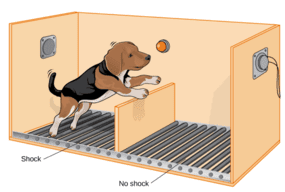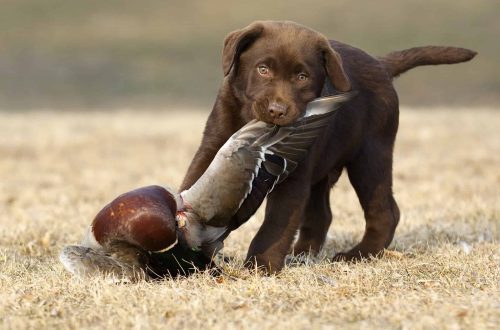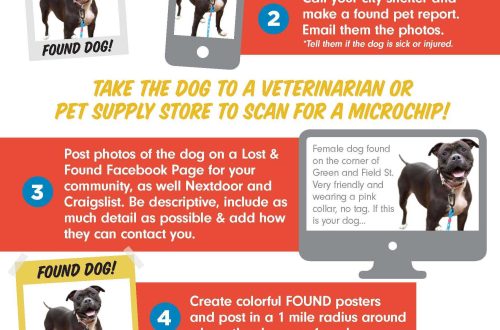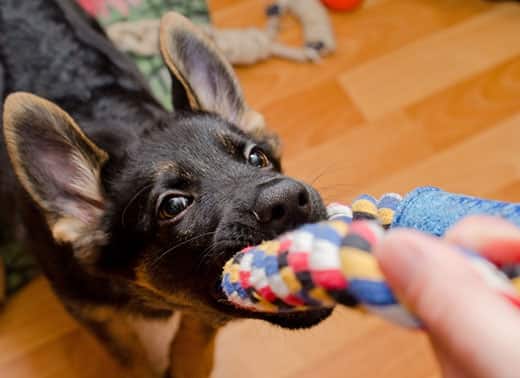
פארוואס עסט אַ הונט אַלץ בשעת גיין?
You know the script. Your puppy walks confidently beside you with his head held high. You are so proud of how far he has come in training in just a few weeks. You, too, walk with your head held high. After all, you have the perfect dog.
And, of course, it is at this moment that the leash is pulled tight, throwing you off balance. When you feel the tug, you realize that your ideal pup has found a stub of some kind of food on the ground (at least you hope it is food!), which he is trying to swallow as quickly as possible.
Of course, you wonder why he tries to eat everything, but not before he swallows a few dirty pieces of unknown origin.
So, how can you stop your dog from eating rubbish off the ground while walking? Here are some tips.
ינהאַלט
Why does a dog try to eat everything?
Journey Dog Training owner Kayla Fratt says it’s natural for dogs to try or eat anything they find, no matter how awful it might be. Dogs chew poop and wet waste because it’s in their DNA.
“Your puppy is guided by its basic impulses to explore the world using its mouth and then eat whatever it finds,” she writes on her blog. “This kind of behavior is not uncommon.”
Fratt also notes that many puppies simply outgrow the period when they want to try everything. But since eating obscure things can be dangerous for your dog, upset your stomach, or even lead to a trip to the vet (not to mention mouth odor!), it’s worth the effort to teach him to stay away from it. that should not fall into her mouth.
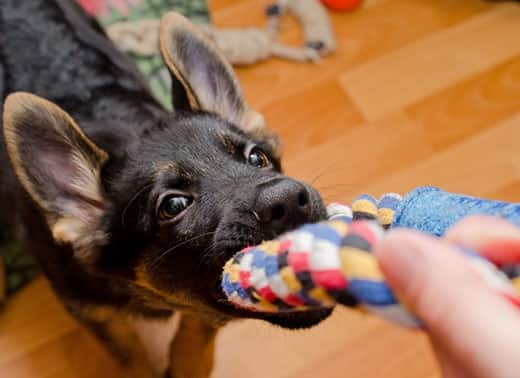
Teaching your puppy to focus on you
So how do you stop a dog from eating outside? The first important step in helping your puppy stop eating everything in front of him is to get him to learn the “no” or “no” command. Sandy Otto, owner of Puppy Preschool dog training center, advises clients to practice this skill with a new puppy every day.
This training technique is easy to master at home:
- Hold an object (such as a toy) in one hand.
- Hold the treat behind your back in your other hand (you need to be sure the dog doesn’t smell it).
- Let the puppy chew on the toy you are holding, but don’t let it go.
- Hold the treat up to his nose so he can smell it.
- When he releases the toy for a treat, use the command of choice and then give him the treat.
This consistent practice will teach your dog to let go of the object when you give the command.
Another way to help your puppy quit is to distract him with treats. Take treats with you on a walk, with their help you can get your dog to pay attention to you as soon as you turn to him.
Persistent Decision Making
Like small children, dogs can apply impulse control. Fratt offers some play ideas that actually teach your dog to “consult” you before following his nose to that curious scent on the ground. One game she calls “it’s your choice.”
This game teaches your dog to stop and turn to you for advice when he wants something. She can teach your dog to make the right decisions when tempted:
- Take treats in your hand and make a fist.
- Have your dog sniff, chew, or paw your hand.
- Do not open your fist until the dog sits down and waits.
- Squeeze your hand as she reaches for the treat. When she sits back down and waits for a second or two, place one treat on the ground for her to eat.
- Gradually increase the time between opening your hand and the treat to teach her to control her impulses.
מיר זענען גיינינג געדולד
“While these methods can help reduce your dog’s tendency to pick up things off the ground while walking, don’t be surprised if these tips don’t work all the time,” Fratt says. Be patient and don’t be afraid to put a difficult training on hold and try again tomorrow.
If you think that your pet’s eating habits may be due to more than just curiosity, you should consult your veterinarian. While unusual, your dog’s tendency to eat anything in sight could be due to a disorder called geophagy, which, as explained on the Wag! website, causes your dog to inadvertently eat non-edible items. Your veterinarian can help you determine if your dog has geophagy. The American Society for the Prevention of Cruelty to Animals (ASPCA) also recommends monitoring for other causes of chewing on strange objects, such as teething or stress.
By patiently working with your dog, playing educational games, and focusing your puppy’s attention on yourself (and not on the junk food wrapper), you can teach him that a walk doesn’t mean “welcome to the smorgasbord.”



